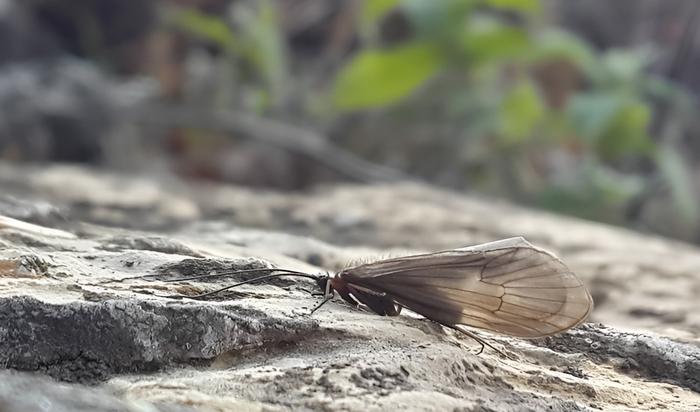Over the last few years, professor Halil Ibrahimi from Kosovo and his team have described several new species of aquatic insects revered as bioindicators of freshwater ecosystems. However, the celebration of these discoveries is tempered by alarming concerns: the newfound species are often already considered endangered, as per the criteria set forth by the International Union for Conservation of Nature (IUCN), as soon as they are described. This classification underscores the urgent need for conservation efforts to safeguard their existence.

Credit: Ibrahimi et al.
Over the last few years, professor Halil Ibrahimi from Kosovo and his team have described several new species of aquatic insects revered as bioindicators of freshwater ecosystems. However, the celebration of these discoveries is tempered by alarming concerns: the newfound species are often already considered endangered, as per the criteria set forth by the International Union for Conservation of Nature (IUCN), as soon as they are described. This classification underscores the urgent need for conservation efforts to safeguard their existence.
The research team just discovered a new species, named Potamophylax kosovaensis, in the spring area of the Llap River, nestled within the Ibër River Basin. The region, known for its ecological significance, serves as a critical habitat for numerous aquatic organisms like newly discovered insect species.
Unfortunately, these freshwater insects are facing unprecedented threats in Kosovo and the broader Balkans region. Anthropogenic pressures, such as water pollution, littering, and the construction of hydropower plants, pose imminent risks to their survival. The degradation of their habitats not only jeopardizes their existence, but also undermines the health and integrity of entire freshwater ecosystems.
Professor Ibrahimi emphasizes on the importance of urgent action to mitigate these threats and conserve this delicate balance of freshwater biodiversity. “The discovery of Potamophylax kosovaensis serves as a stark reminder of the fragility of our freshwater ecosystems,” he states. “We must prioritize efforts to protect these habitats and the invaluable species they harbor.”
The study was financed by the Integrated Water Resource Management in Kosovo (IWRM-K) and was conducted in the Laboratory of Zoology-Department of Biology of the University of Prishtina. It was published in the open-access, peer-reviewed Biodiversity Data Journal.
Original source:
Ibrahimi H, Bilalli A, Geci D, Grapci Kotori L (2024) Potamophylax kosovaensis sp. nov. (Trichoptera, Limnephilidae), a new species of the Potamophylax winneguthi species cluster from the Ibër River Basin in Kosovo. Biodiversity Data Journal 12: e121454. https://doi.org/10.3897/BDJ.12.e121454
Journal
Biodiversity Data Journal
DOI
10.3897/BDJ.12.e121454
Article Title
Potamophylax kosovaensis sp. nov. (Trichoptera, Limnephilidae), a new species of the Potamophylax winneguthi species cluster from the Ibër River Basin in Kosovo
Article Publication Date
5-Apr-2024




